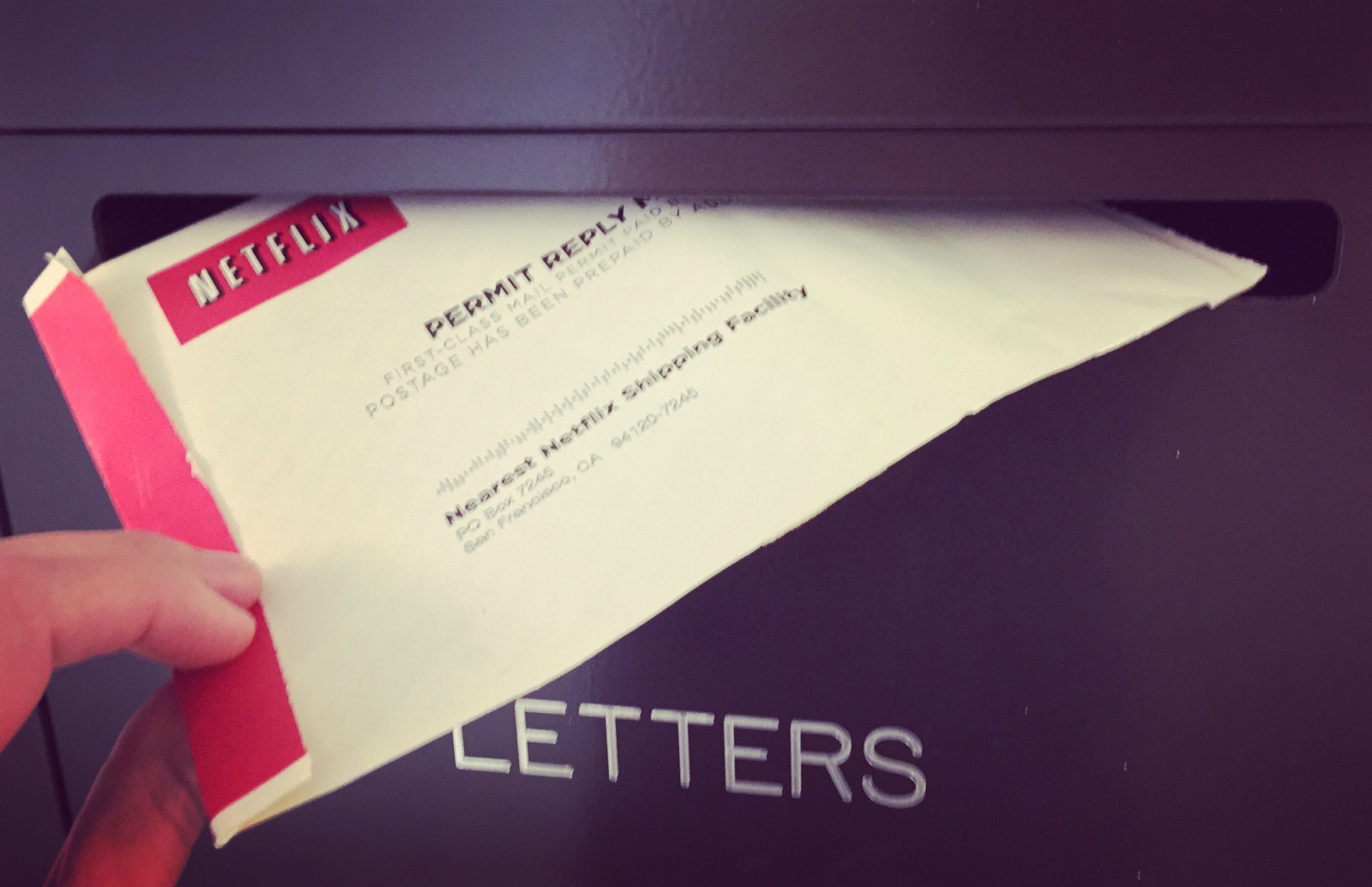What We Can Learn From How Netflix Mastered 24-Hour Disc Shipping

Originally published at Forbes.com on October 17th, 2017.
This is post four in our 13-part Lean Startup Co. Education Program series. A curated collection of pieces designed to cover topics ranging from cross-functional teams, to embracing failure, complete with real-world stories from our diverse roster of clients and insights from our Lean Startup Co. Labs Faculty.
Today’s movie and television consumers are accustomed to low-cost, on-demand digital delivery solutions. No one waits more than a few minutes for content to download and start streaming. But that innovation, often lead by Netflix itself, has roots in the company’s startup several decades ago. Netflix began as a shoestring startup bolstered by a group of passionate entrepreneurs with a crazy idea, and persistent Lean Startup experimentation ensured the company didn’t fail. That spirit of innovation is what makes it one of the most successful brands today. Here are four lessons you can learn from Netflix’s early years:
Anything Can Be An Experiment
Jim Cook, now Mozilla CFO and then Netflix co-founder, told us in a recent Lean Startup Co. webcast that in 1997 and subsequent years, the team at Netflix approached everything by “taking the scientific method to the extreme.” Nothing was off the table for improvement, and making improvements meant trying different things. The Netflix team assumed everything they did could be done better. From the way they marketed to the size, shape and color of the shipping envelope, everything was up for experimentation.
When everything is an option, fewer walls seem to get in the way. In fact, Cook also shared that it’s this type of boundless thinking that drew him to the Netflix project to begin with. As a finance pro, he originally came up with argument after argument for why the company wouldn’t work. His co-founders met each argument with new ideas, persistent what-ifs and a refusal to believe that a way couldn’t be found.
One example of this commitment to experimentation and persistence was an early marketing campaign Netflix ran. At the time, only three manufacturers were making and shipping home DVD players. As new technology, it was a hot item, especially around the holidays. Netflix reached out to the manufacturers and ensured every DVD package came with a coupon for 10 free Netflix rentals. Anyone can recognize the marketing gold there, but Netflix didn’t stop at that. Its team experimented with color, font, design: How could they ensure their coupon was the coupon people saw? What made a coupon actionable and which format converted more users? It’s important to create data-driven experiments in order to validate (or invalidate) your assumptions.
Define The Important Metrics
Lean Startup experimentation isn’t just about making willy-nilly changes. If you don’t have specific metrics you’re working toward, you might just be wasting time, money and creative energy that is needed elsewhere. In the early years, the Netflix team measured every experiment, every change and every success or failure against a double-edged yardstick:
• Did this change/idea give the customer more of what they want?
• Was this change/idea scalable?
Those two questions make it easy to make decisions and implement changes without getting hung up in days, weeks or months of pondering. The team also spoke directly with customers and didn’t make assumptions about what the audience really wanted. It’s this two-way communication that led to the subscription model that let customers create to-watch queues. It’s now a common business model, but Netflix pioneered a queue ordering system that put customers in charge of the inventory.
Create Business Partnerships
Even during startup phases, when you’re bootstrapping or trying to differentiate your brand, it’s difficult to do everything on your own dime or your own strength. Creating viable business partnerships helps organizations expand and ensures that you can specialize in the thing you really want to be doing.
Netflix put this idea into action by partnering with the United States Postal Service. Jim Cook says he literally knocked on the door of a global mail facility one day (he also clarifies that he made a phone call first — entrepreneurs might want to call before they show up at compliance-heavy organizations). Cook asked questions and spent three months in and around the post office facilities, working with the USPS to figure out a way to get Netflix disc envelopes to customers within 24 hours — a norm via services like Amazon Prime today, but a groundbreaking task fewer than two decades ago.
Continuous innovation was at play here too. The first day, Cook put five discs through a test process. They were all destroyed by sorting machines in the facility. “How do we stop that from happening?” Cook asked. Simple, said the post office employees. You change the envelope. Simple. And not simple at all. The Netflix envelope actually went through more than 150 changes in the first few years as the team worked on better branding, shipping, processing and return processes.
Don’t Quit After The First (Or 101st) Try
That comes right to the final lesson on Lean Startup experimentation from Netflix. A truly entrepreneurial mindset doesn’t give up on the first try. Or the second. Or even the 150th, because chances are, that envelope was altered again after the first few years. There’s an important caveat to that rule, though: With Lean Startup, you sometimes invalidate your idea and prove you should stop trying because there’s a better way or better idea. That’s not quitting. That’s a win that moves you toward success. Remember, success doesn’t always end up looking like you first imagined. And data- and experiment-backed changes are good.
Continuous innovation means working through experiments to find the best way of doing something and then saying, “I bet we could do one better.”
 Written by Heather McGough.
Written by Heather McGough.
Yesterday we covered Science is Strategy. The scientific method is a proven, step-by-step technique for discovery and validation. It uses questions and experiments to help us solve problems. It turns guesses and trends into data, and it’s effective across diverse environments.
If you seek to bring the entrepreneurial spirit to your large, complex organization, Lean Startup Company can help. We offer live and virtual training, coaching and consulting to empower people and companies to solve their own problems using entrepreneurial management, no matter their industry, size company, or sector of the economy. Email us.
